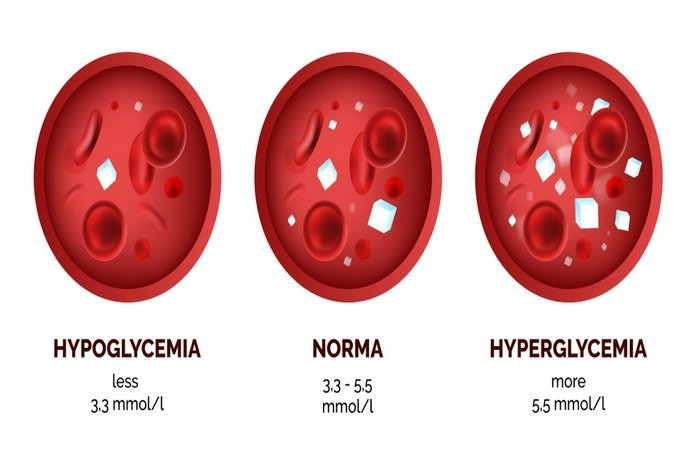Hypoglycemia (hypo = low, glycemia = glucose/sugar) is one of the metabolic disorders in which the blood glucose level is typically lower than the average blood glucose level. Glucose constitutes the preponderance of the body’s energy supply. Hypoglycemia is typically caused by an adverse effect of diabetes medication. However, certain other drugs and a variety of metabolic disorders can also produce low blood glucose levels in a number of individuals. Hypoglycemia can occur in individuals who do not have pre-diabetes, diabetes, or metabolic syndrome as a result of rare medical conditions that cause blood sugar levels to drop below the normal range.Low blood glucose levels can cause syncope or unconsciousness in hypoglycemic patients, necessitating immediate medical attention despite the fact that hypoglycemia is not generally harmful to health. The majority of people’s fasting glucose levels are close to 3.9 millimoles per liter (mmol/L) or 70 milligrams per deciliter (mg/dL); levels of blood glucose below this level serve as a warning sign of hypoglycemia. To confirm the condition of hypoglycemia, it is advisable to seek a specialist’s accurate diagnosis of blood glucose levels.

The treatment for hypoglycemia consists of gradually restoring normal blood glucose levels through the use of medications or by consuming high-sugar beverages or foods. The consumption of medications or glucose-rich foods or beverages is one of the short-term treatments for hypoglycemia, but they do not help eradicate the condition. In addition, the long-term treatment plan for hypoglycemia involves identifying and treating the underlying cause of hypoglycemia. Patients with hypoglycemia who do not seek treatment may experience complications such as seizures, mortality, or loss of consciousness.
